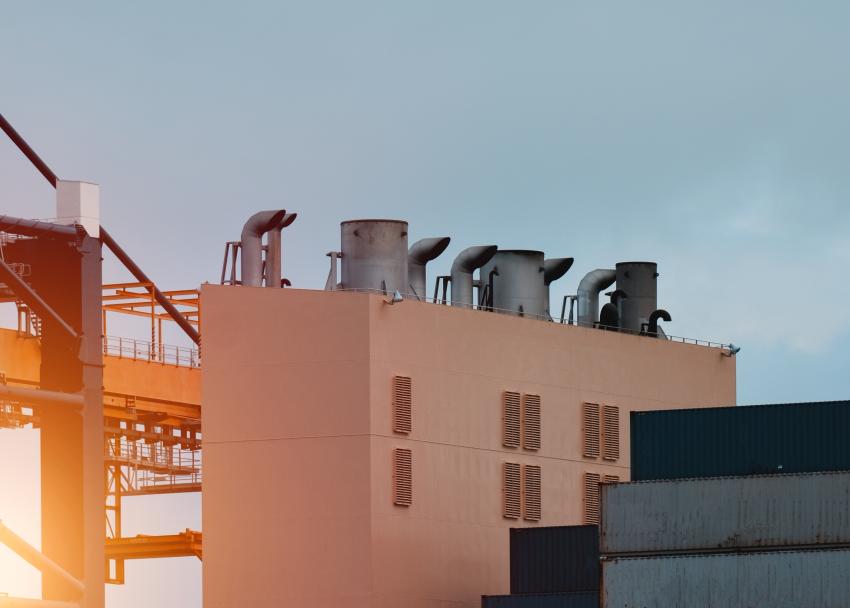A research project which was jointly implemented by Latvian scientists of WTM Solutions and the Freeport of Riga Authority capital company LVR Flote with the aim to develop and test a prototype exhaust gas cleaning reactor for ship engines in a real-life operating environment was successfully concluded. The aim of the research is to use unique know-how to create a ship exhaust gas cleaning plant that is more environmentally friendly, more efficient and at the same time cheaper than those currently used by shipping companies.
The research project was carried out with the support of the EU's Recovery Fund within the framework of the “Mechanical Engineering Competence Centre” project. As a result, an innovative technology for exhaust gas cleaning of marine diesel engines and a prototype exhaust gas cleaning reactor were developed and tested - initially in laboratories and subsequently in a real operating environment on board the LVR Flote vessel LĪVA.
“To meet the requirements for reducing sulphur emissions in exhaust gases, ships currently use scrubbers that separate sulphur from the rest of the fuel during combustion. As a result, the sulphur, together with soot and unburnt fuel residues, is transformed into hazardous waste in the scrubbers. Our technology makes it possible to remove nitrogen oxides, all aromatic and hydrocarbon particles (methane), extract the sulphur in its pure form and collect it for further use. We are currently working on a solution to neutralise the remaining CO2. We hope that in the next stage we will be able to implement this idea as well,” said Dmitrijs Uspenskis, Lead Researcher at WTM Solutions.
The project results are currently being certified by international laboratories and classification bodies, while WTM Solutions scientists have already started work on the next phase of the project to further develop the technology, test it on large vessels and start production.
The introduction of the new technology on board vessels will reduce harmful waste, contribute to the development of a circular economy and move the shipping industry towards its goals of reducing not only sulphur emissions but also CO2 emissions.
The scientists' idea was successfully implemented due to the close cooperation and support of the Mechanical Engineering and Metalworking Industry Association (MASOC), which is implementing the project “Mechanical Engineering Competence Centre”, and LVR Flote, which provided a real-life environment for measurements, research and tests. LVR Flote’s vessel LĪVA was equipped with a pilot facility for full-scale tests and for the re-verification of the results obtained under laboratory conditions.
“We are delighted that such an innovation is being created in Latvia, thus boosting our country's recognition. We are proud that LVR Flote vessels and team are taking part in promoting the development of such technologies,” said LVR Flote Board Member Kaspars Ozoliņš. “LVR Flote supports research and innovation projects that contribute to both the quality of our services and the development of the industry as a whole. We will continue our cooperation with WTM Solutions and plan to work together on other research and technologies that contribute to cleaner, greener maritime transport using new, sustainable technologies,” added Kaspars Ozoliņš.
 English
English























